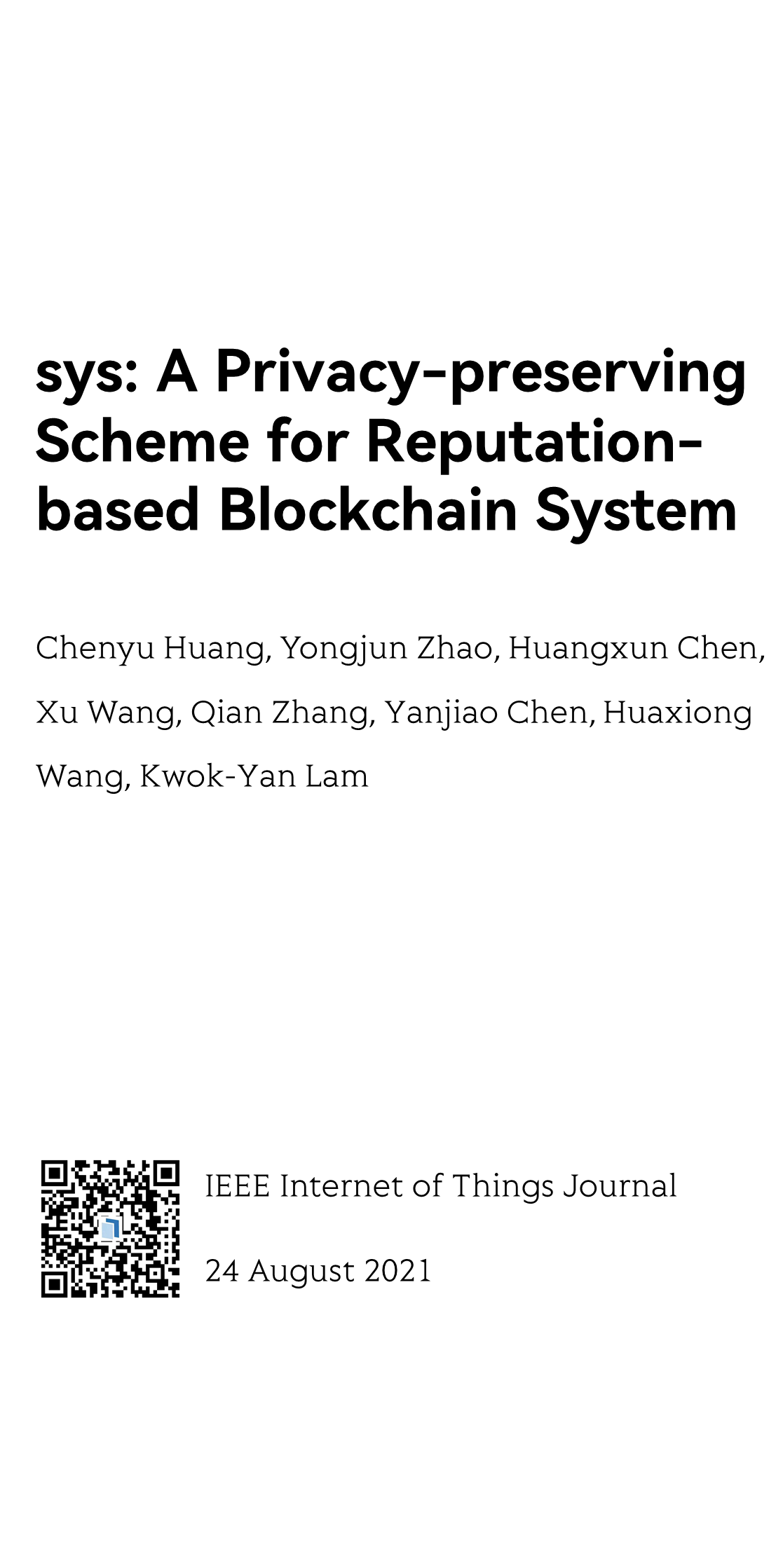(Peer-Reviewed) sys: A Privacy-preserving Scheme for Reputation-based Blockchain System
Chenyu Huang ¹, Yongjun Zhao ², Huangxun Chen ³, Xu Wang ⁴, Qian Zhang 张黔 ⁵, Yanjiao Chen 陈艳姣 ⁶, Huaxiong Wang 王华雄 ², Kwok-Yan Lam 林国恩 ²
¹ Ping An Technology, Shenzhen, China
中国 深圳 平安科技
² Nanyang Technological University, Singapore
³ Theory Lab of 2012 Labs, Huawei, Shenzhen, China
中国 深圳 华为2012实验室理论实验室
⁴ School of Computer Science, Wuhan University, Wuhan, China
中国 武汉 武汉大学计算机学院
⁵ Department of Computer Science and Engineering, Hong Kong University of Science and Technology, Hong Kong
香港 香港科技大学计算机科学与工程系
⁶ College of Electrical Engineering, Zhejiang University, Hangzhou, China
中国 杭州 浙江大学电气工程学院
IEEE Internet of Things Journal, 2021-08-24
Abstract
Reputation/Trust-based blockchain systems have attracted considerable research interests for better integrating Internet-of-Things with blockchain in terms of throughput, scalability, energy efficiency and incentive aspects. However, most existing works only consider static adversaries. Hence, they are vulnerable to slowly adaptive attackers, who can target validators with high reputation value to severely degrade the system performance. Therefore, we introduce , a privacy-preserving scheme tailored for reputation-based blockchains.
Our basic idea is to hide both the identity and reputation of the validators by periodically changing the identity and reputation commitments (i.e., aliases), which makes it much more difficult for slowly adaptive attackers to identify validators with high reputation value. To realize this idea, we utilize privacy-preserving Pedersen-commitment-based reputation updating and leader election schemes that operate on concealed reputations within an epoch.
We also introduce a privacy-preserving identity update protocol that changes the identity and time-window-based cumulative reputation commitments during each epoch transition. We have implemented and evaluated on the Amazon Web Service. The experimental results and analysis show that achieves great privacy-preserving features against slowly adaptive attacks with little overhead.
Separation and identification of mixed signal for distributed acoustic sensor using deep learning
Huaxin Gu, Jingming Zhang, Xingwei Chen, Feihong Yu, Deyu Xu, Shuaiqi Liu, Weihao Lin, Xiaobing Shi, Zixing Huang, Xiongji Yang, Qingchang Hu, Liyang Shao
Opto-Electronic Advances
2025-11-25
A review on optical torques: from engineered light fields to objects
Tao He, Jingyao Zhang, Din Ping Tsai, Junxiao Zhou, Haiyang Huang, Weicheng Yi, Zeyong Wei Yan Zu, Qinghua Song, Zhanshan Wang, Cheng-Wei Qiu, Yuzhi Shi, Xinbin Cheng
Opto-Electronic Science
2025-11-25





